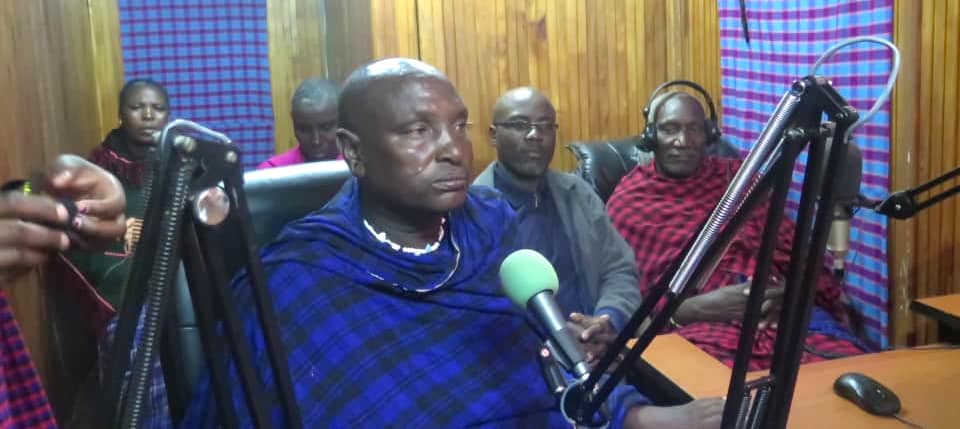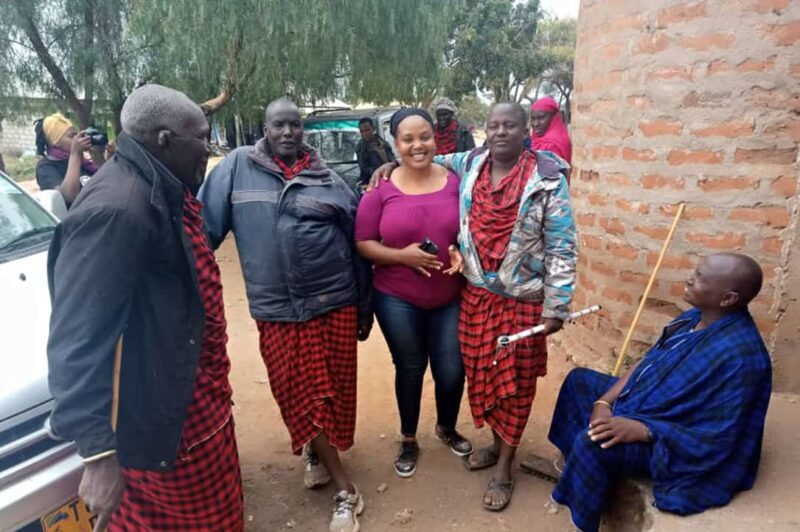“I was forced to be mutilated. Painful as it was, I was told not to cry because I’m now a woman. A strong woman never cries,” recalled one of the victims of Female Genital Mutilation (FGM), whose identity is hidden to protect her.
She took part in a live radio program, broadcast by an Internews partner, discussing ways to end the age-old practice inflicted on the Maasai women. It was her first time to be on a radio show and interact with Maasai elders who have the most say on which traditional practice goes and which stays.
She is one of Maasai girls calling for the creation of a safe forum where their voices can be heard and for programs to build their confidence and know their self-worth in order to get rid of Gender Based Violence, including FGM.
The program, broadcast by Orkonerei Radio Service in Manyara, followed a report by Health Integrated Multisectoral Development (HIMD) which found that 7 in 10 girls it interviewed were mutilated in preparation for marriage.
The Arusha-based CSO has been engaging the Maasai community to fight Gender Based Violence, focusing on FGM, working with victims, survivors, traditional elders, political leaders, social welfare and medical officers.
HIMD’s Paza Sauti (Raise your Voice) project, supported by a grant from Internews, is aimed at giving voice to various groups in the Maasai community to speak up on the negative effects of FGM.
More Maasai girls want a greater say in what goes on in their lives. “I am free to talk about it not because I’m proud of it, but because I need the world to know that we hate FGM and we need to protect the younger generation from this harmful tradition practice.”
Another girl speaks of the threat hanging over her life. “I’m not mutilated but I’m not safe, my father has power over me and my mother. I want to escape and I will. I’m not ready to get married at this age. I want to be a lawyer in the future and no price is too high for my destiny.”
While FGM is illegal under the Sexual Offences Special Provisions Act (SOSPA) of 1998 and termed as violence against women and the girl child, NGO observers say not enough has changed in practice.
Sara Mwaga, Executive Director of Anti-Female Genital Mutilation Network, another CSO fighting FGM observes, “I started this fight since 2004. We have made progress, but still more effort is needed especially in changing attitudes. People are doing it secretly to the infants now.”
Elders are calling for more time and education to the community, especially on the negative effects of FGM.
Leigwanak Ole Samburi, a Maasai traditional elder said after the discussion he is now aware of some of the effects of FGM and was ready to join in campaigns to end it, noting, “We cannot get the changes we want if we don’t invest in changing of attitudes through awareness raising programs on the effect of FGM.”

“This is not a one-day event but continuous joint efforts with different stakeholders,” said Leigwanak Petro Mindia, another Maasai elder, also lauding the use of the local radio station to reach the community. He also suggested that more elders be informed and involved in the programs because of their positions as decision makers.
HIMD was one of five CSOs that won small grants from Internews to run media campaigns as part of implementing the objective of raising civil society organizations’ ability to effectively communicate and advocate on key issues.
The five funded CSOs addressed social issues such as sexual harassment, land ownership, equity and rights, female genital mutilation (FGM) and the establishment of a youth council.
Internews’ activities in Tanzania are funded by USAID.
(Banner photo: HIMD team with Maasai elders in Manyara. Credit Internews)
